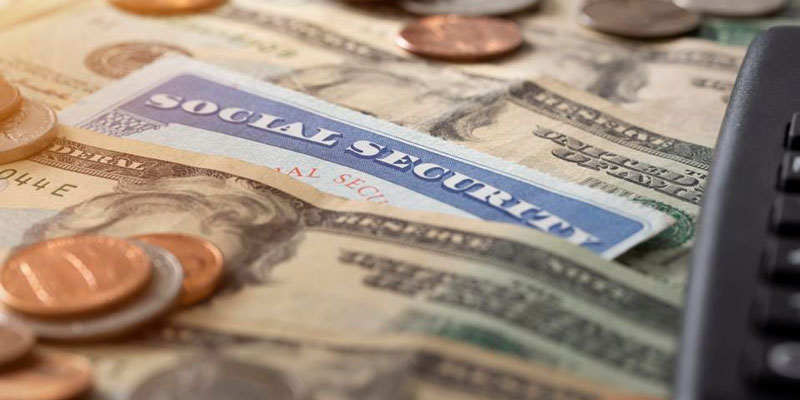The Truth About Fast Cash Loans: Are They Legitimate?
Nov 30, 2023 By Susan Kelly
In today's fast-paced world, financial emergencies can strike when you least expect them. Whether it's an unexpected medical bill, a car repair, or simply making ends meet before your next paycheck, many people turn to fast cash loans for quick relief. But are these loans legitimate, or are they too good to be true? Let's delve into the world of fast cash loans and separate fact from fiction.
Understanding Fast Cash Loans
When it comes to managing financial emergencies, fast cash loans can provide a quick solution. Let's explore what these loans entail and how they work.
What Are Fast Cash Loans?
Fast cash loans, often referred to as payday loans, cash advances, or short-term loans, are small, short-term loans typically ranging from a few hundred to a few thousand dollars. They are designed to help individuals bridge financial gaps until their next paycheck arrives. These loans are known for their accessibility and speedy approval process, making them an attractive option during emergencies.
How Do Fast Cash Loans Work?
Fast cash loans work on a simple premise. Borrowers request a specific amount of money from a lender, usually providing a post-dated check or authorizing an electronic withdrawal from their bank account. The lender then disburses the loan amount, plus fees and interest, to the borrower. Typically, the borrower is obligated to completely repay the loan within a specified timeframe, which often falls between two weeks and one month, depending on the terms of the loan agreement.
The Pros and Cons

Let's weigh the pros and cons of fast cash loans to better understand their legitimacy:
Pros:
Quick Access: Fast cash loans are known for their speed. You can often get the money you need within hours.
No Credit Check: Fast cash loans, unlike conventional loans, usually do not necessitate an extensive credit check, thus remaining available to individuals with less-than-perfect credit histories.
Simple Application: The application process is usually straightforward, requiring minimal documentation.
Flexibility: You can use the funds for various purposes, from paying bills to covering unexpected expenses.
Cons:
High Fees: Fast cash loans come with high fees and interest rates, which can lead to a cycle of debt if not managed carefully.
Short Repayment Period: Borrowers must repay the loan quickly, often within a few weeks, which can be challenging for some.
Risk of Predatory lenders: Some lenders may take advantage of desperate borrowers, leading to unfair terms and practices.
Are Fast Cash Loans Legitimate?
Now that we understand what fast cash loans are, it's time to address the critical question: Are they legitimate? The answer isn't a simple yes or no; it depends on various factors.
Legal Regulations
The legitimacy of fast cash loans largely depends on the regulatory environment in your area. Laws and regulations regarding these loans vary significantly from one place to another. Some regions have strict rules in place to protect consumers, while others have more lenient regulations.
It's essential to research the laws in your state or country to ensure you're dealing with a legitimate lender. Reputable lenders will always adhere to local regulations.
Responsible Lending Practices
Legitimate lenders follow responsible lending practices. They provide borrowers with clear and transparent terms and conditions, including the total cost of borrowing. They also ensure that borrowers can repay the loan without causing undue financial hardship.

Before accepting a fast cash loan, carefully review the terms and conditions. If a lender is not transparent about fees, interest rates, or repayment terms, consider it a red flag.
Predatory Lending Warning Signs
To avoid falling victim to predatory lenders, watch out for these warning signs:
Too Good to Be True Offers: If a lender promises guaranteed approval with no credit check, it might be a scam.
Excessive Fees: Be cautious of lenders who charge exorbitant fees and interest rates.
Pressure to Borrow More: Some lenders may pressure you to borrow more than you need, leading to greater debt.
Unusual Payment Methods: Avoid lenders who ask for unusual payment methods like gift cards or wire transfers.
Alternatives to Fast Cash Loans
Before rushing into a fast cash loan, consider alternative options that might be more financially sound:
Emergency Fund: Building an emergency fund can provide a financial safety net for unexpected expenses.
Negotiating with Creditors: If you're facing difficulties in managing your bills, consider initiating negotiations with your creditors to establish a feasible payment arrangement.
Borrow from Friends or Family: Consider borrowing from friends or family members who may offer better terms and understanding.
Responsible Borrowing
If you decide that a fast cash loan is your best option, it's crucial to borrow responsibly to ensure you don't fall into a cycle of debt.
Assess Your Needs: Before applying for a fast cash loan, carefully assess your financial situation. Determine exactly how much you need to cover your emergency expenses. Borrowing more than necessary can lead to unnecessary interest and fees.
Read and Understand the Terms: Don't rush through the loan application process. Take the time to read and understand all the terms and conditions. Pay close attention to the interest rate, fees, and the due date for repayment.
Repayment Plan: Have a clear plan for repaying the loan. Ensure that you can comfortably cover the loan amount, fees, and interest on the due date. If not, consider alternative solutions or a smaller loan amount.
Avoid Rollovers: Rolling over a loan by extending the term and making payments solely toward interest and fees can initiate a dangerous cycle of debt. Avoid them if possible and strive to repay the loan in full on time.
Conclusion
Fast cash loans can be a legitimate solution in times of financial need, but they come with risks. Whether they are legitimate or not depends on the lender, the laws in your area, and your ability to borrow responsibly. Prior to proceeding with a quick cash loan, it's crucial to engage in thorough research, meticulously examine all the particulars, and explore choices.
When used wisely, these loans can provide the relief you need, but when mishandled, they can lead to financial distress. The key is to make informed decisions that best suit your unique circumstances and needs.
-
 Banking Jan 05, 2024
Banking Jan 05, 2024All You Need To Know About why Checking Accounts Have Beneficiaries
When opening most investment accounts, it is customary to provide the account ownership to a beneficiary. The question then becomes, what about checking accounts? The person or organization that you choose to receive the benefits of an account after your passing is known as the beneficiary of that account.
-
 Know-how Nov 22, 2023
Know-how Nov 22, 2023Navigating Early Credit Card Access: Benefits and Cautionary Tips
Explore the benefits and risks of using your credit card before it arrives and understand the best practices for a secure experience.
-
 Know-how Nov 30, 2023
Know-how Nov 30, 2023The Truth About Fast Cash Loans: Are They Legitimate?
Fast cash loans can be a lifesaver in emergencies, but are they legitimate? Learn the ins and outs of these loans to make an informed decision.
-
 Banking Nov 04, 2023
Banking Nov 04, 2023Magnetic Stripe Cards: What Are They?
With the swipe of the card reader, personal information may be retrieved from the card's magnetic stripe. The cardholder's name, address, bank details, and account balances are all examples of personally identifiable information. Because of the ease with which this data can be accessed immediately, transactions can be completed more swiftly and precisely. Since IBM introduced magnetic stripe cards in the 1960s, they have been employed in several scenarios.
